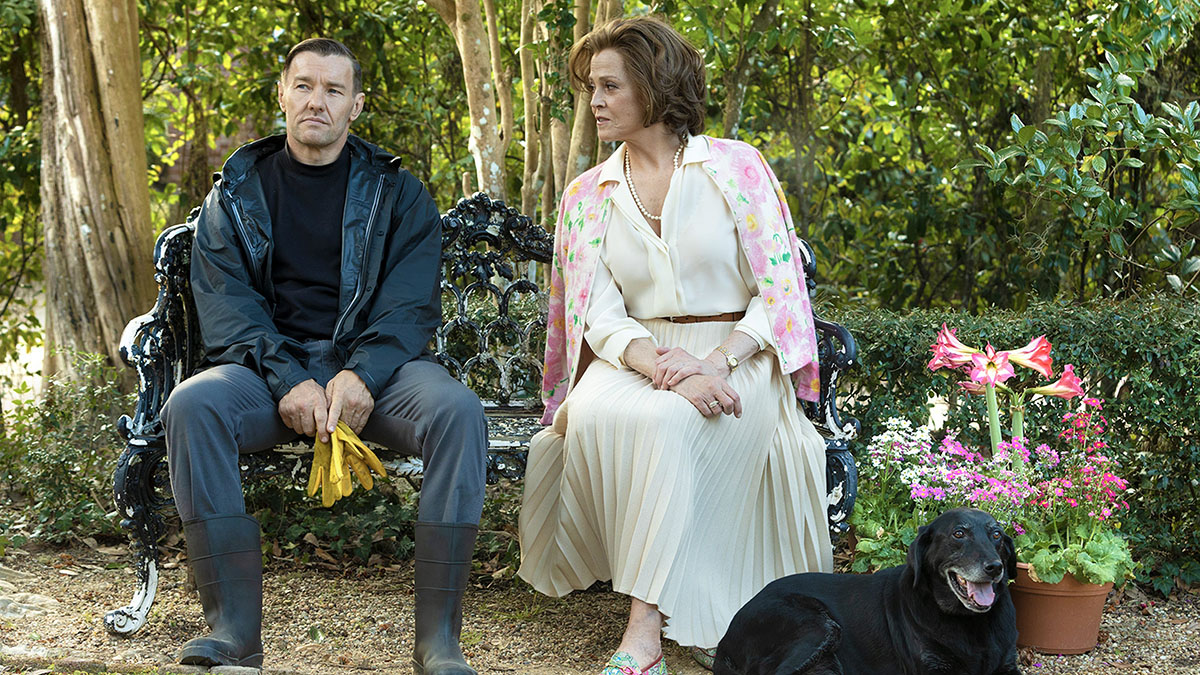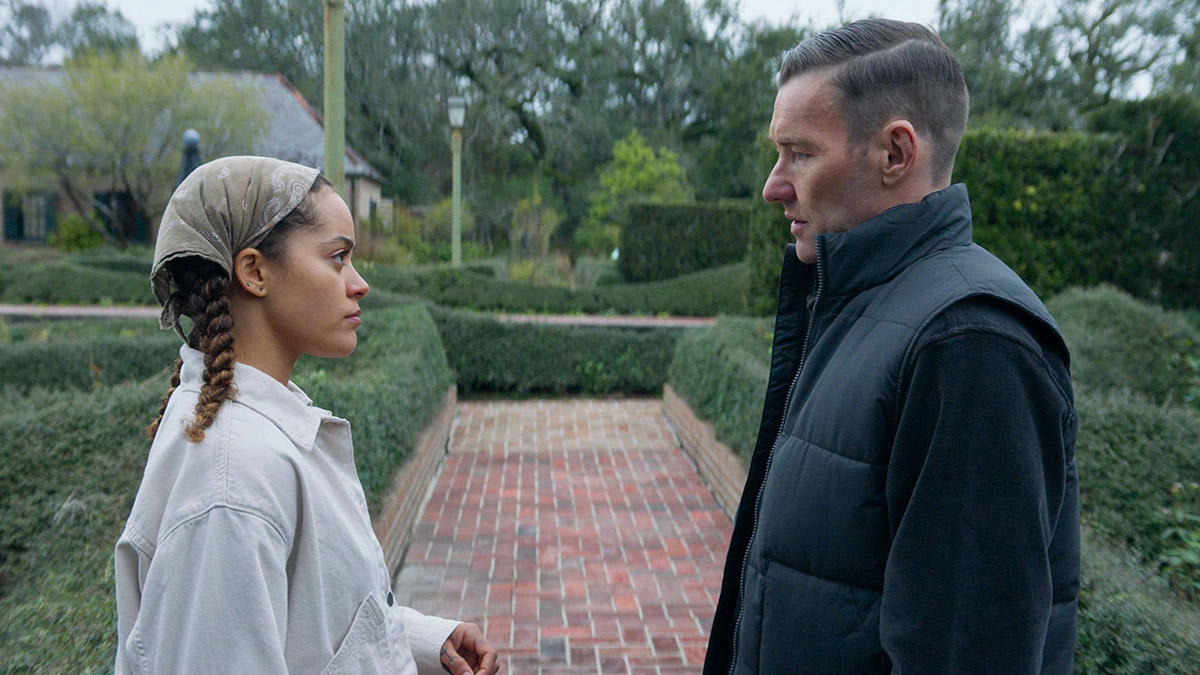Time for Reflection: Master Gardener and the Late-style Transformation of Paul Schrader

Critics Campus 2023 participant Kevin Bui examines Paul Schrader’s shift away from narratives of retribution and towards tales of personal growth – culminating in one of his most hopeful, if also most difficult, films.
Paul Schrader has been thinking a lot about death recently; he made that much clear at last year’s Venice International Film Festival. During a masterclass accompanying his receipt of the Golden Lion for Lifetime Achievement, the 77-year-old director and screenwriter relayed to the audience his new approach to movie-making. “I used to be an artist who never wanted to leave this world without saying, ‘Fuck you,’” he proclaimed. “Now I’m an artist who never wants to leave this world without saying, ‘I love you.’”
It’s a perspective that’s been well represented in his latest stretch of work. The quote itself stems from a song that’s featured in the closing moments of Schrader’s newest movie, Master Gardener (2022), which sees the filmmaker continue along the path of repositioning himself as one of the premier voices of American cinema. After experiencing bouts of much-publicised studio interference across a number of his productions, Schrader has turned his talents to the world of independent filmmaking, swapping larger budgets for the freedom of having the final cut – leading to some of the greatest, and arguably most romantic, work of his career.
His latest fable follows Narvel Roth (Joel Edgerton), a gifted horticulturist with a turbulent past as a member of a white supremacist militia group, who now carves out a living tending to the grounds of Gracewood Gardens for the estate’s wealthy dowager, Norma (Sigourney Weaver). Hiding out in witness protection after betraying his former associates, he has his new life suddenly disrupted by Norma’s grand-niece Maya (Quintessa Swindell), who comes to work at Gracewood under Narvel’s tutelage. Soon, a romance begins to bloom between the gardener and his apprentice, inadvertently unlocking secrets from the former’s violent past.
Alongside Schrader’s previous two works, First Reformed (2017) and The Card Counter (2021), Master Gardener caps off an informal trilogy of films in which the director revisits familiar themes of masculinity, violence, faith and redemption in a 21st-century context – a showcase for the stylistic evolution that has seen Schrader return to the cinematic interests that first fascinated him during his brief career as a critic in the 1960s and 1970s. The influence of Robert Bresson – and, in particular, his 1959 film Pickpocket – on Schrader’s work has, for example, been well documented throughout the years, reflecting the former’s place in the latter’s 1972 book Transcendental Style in Film: Ozu, Bresson, Dreyer (which examines the similarities between the legendary French director and other auteurs who have explored spiritual themes in their films).
Traces of these inspirations can be found in Schrader’s earlier work, most clearly in the endings of Light Sleeper (1992) and American Gigolo (1980) – both of which directly reference the final images of Pickpocket – as well as in his collaborations with Martin Scorsese. One such trope that frequently litters his filmography is the ‘God’s lonely man’ protagonist: male characters with troubled pasts who have voluntarily confined themselves to lives of isolation and routine, scribbling their existentialist thoughts into journals in the dead of night before series of events push them into emotionally cathartic violent acts. While men like this populate a significant number of Schrader’s films, previous iterations of this archetype hewed closer to the conventions of neo-noir, featuring protagonists who reluctantly find themselves in situations necessitating the use of extreme force; with Narvel and William Tell (Oscar Isaac) – the lonely man at the centre of The Card Counter – however, Schrader has instead made a conscious choice to place the protagonists of his late period in circumstances that allow them to retreat from the violence of their past lives. In their newfound occupations, the same hands that are capable of such brutality are given the space to be used for something much more intimate. As Narvel posits in one of his journal entries, “The seeds of love grow like the seeds of hate.”

Master Gardener
Despite the – at least, compared with today’s standards – challenging thematic content of these films, much of Schrader’s earlier work contained sequences or stylisations (a guns-blazing shootout climax in Light Sleeper; a sexy MTV-music-video sheen courtesy of producer Jerry Bruckheimer in American Gigolo) that helped garner moderate success with the general movie-going population. In his latest films, by contrast, Schrader has pulled away from any semblance of realism that may have appealed to mainstream audiences. Instead, the director has leaned all the way into the hallmarks of a late-period filmmaker: chilly performances, muted cinematography and scripts that focus on the emotional journeys of characters rather than moving an overarching story forward.
As he neared the end of his life, Pablo Picasso famously started painting faster and faster, his brushwork more sketch-like and gestural as he rushed against the clock; “I have less and less time,” the artist reportedly remarked, “and yet I have more and more to say.” It’s a sentiment that has been shared by many late-style artists, whose world views have evolved as they reached the twilight years of their life. In the realm of cinema alone, the last decade or so has seen tremendous late works from directors such as David Cronenberg, Paul Verhoeven and Abel Ferrara, all former stalwarts of a robust theatrical system who, like Schrader, have retreated to the sanctuary of independent film to tell stories representative of their entire careers without the pressure of studio notes or the need for commercial success.
Cultural critic Theodor Adorno once noted, “In the history of art, late works are the catastrophes.” While Master Gardener may not exactly be the kind of catastrophe Adorno envisaged, his point that late works can be interpreted as unwieldy has been reflected in Schrader’s newest film’s reception, which has been relatively muted – certainly, in comparison with the critical acclaim of First Reformed, which earned the director his first ever Academy Award nomination, and The Card Counter, which topped multiple critics’ end-of-year lists.
Schrader’s script has a complicated racial dynamic baked into its DNA, with its depiction of a relationship between a young Black student and her older white mentor being muddied by the latter’s former life as a Neo-Nazi (his swastika tattoos function as a recurring image throughout the movie). Curiously, Schrader chooses to eschew any scenes that might directly interrogate this troubling connection, instead deciding to devote large swathes of the film to Narvel waxing poetic about man’s relationship with nature. There seems something reckless, too, about staging a romance between a reformed white supremacist and a Black woman on the grounds of a former slave plantation in Louisiana.
What’s clear is that, with this loose trilogy of late-period films, Schrader has chosen to foreground men who are purposely challenging to sympathise with, difficult to untangle and deeply alienated from society. It is their relationships with younger, more imprintable counterparts – Mary (Amanda Seyfried) in First Reformed, Cirk (Tye Sheridan) in The Card Counter and now Maya in Master Gardener – that offer them a chance at a new beginning and redemption.
If his statement at Venice last year is any indication, the optimism and hope present in Schrader’s late period will be a priority of his for years to come, regardless of whether this allows his work to dig into grander themes and ideas. One could assume that a trade-off such as this might sully such an iconic career; but while other filmmakers may be bound to the idea of a perfect legacy, Schrader seems more than happy to carry on marching to the beat of his own drum.
In a scene about halfway through Master Gardener, Narvel lectures one of his younger colleagues on humanity’s historical connection with nature, describing to her how previous generations slept directly on the soil. “You amaze me when you get romantic like this,” she slyly observes.